
Miriam Abele
Technical University Munich
Germany
EMBO Practical Course
EMBL is committed to sharing research advances and sustaining scientific interaction throughout the coronavirus pandemic. We are delighted to announce that the course is going virtual and invite you to join us online.
This course will provide both theoretical and practical training in the use of quantitative proteomics approaches. Participants will learn the principles of current methodologies including label-free, SILAC and TMT as well as targeted proteomics, and they will be trained in the use of bioinformatic tools for data analysis.
This course is aimed at researchers who know the basics of proteomics and who want to get a deeper understanding of quantitative methodologies, and at those who are familiar with wet-lab proteomic experimentation but want to gain experience in bioinformatic data interpretation. To enter the course a basic understanding of mass spectrometry-based proteomics is beneficial.
“This course aids you in paving the way towards the full potential of quantitative proteomics and is essential for both new and experienced users.” — Jarne Pauwels, VIB-University Ghent.
“I enthusiastically highly recommend this course to anyone interested in quantitative MS. The high caliber of speakers, combination of theoretical with practical applications, organization and international participants made this an especially wonderful academic experience.” — Enzo Scifo, Campbell Family Mental Health Research Institute of CAMH, University of Toronto, Canada.

Technical University Munich
Germany

ETH Zürich
Switzerland

Ghent University
Belgium
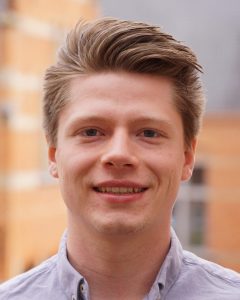
Ghent University
Belgium

University of Michigan
USA

University of Michigan
USA

EMBL Heidelberg
Germany

German Cancer Research Center
Germany

Technical University Munich
Germany

Ghent University
Belgium
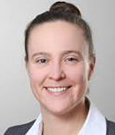
Technical University of Munich
Germany

University of Oxford
UK

University of Michigan
USA

EMBL Heidelberg
Germany
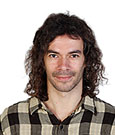
EMBL Heidelberg
Germany

Weizmann Institute of Science
Israel

Albert Einstein College of Medicine
USA

Ghent University
Belgium

German Cancer Research Center
Germany

Technical University Munich
Germany

EMBL Heidelberg
Germany
Got something to say? Tweet it with #EMBOQuantPro
The following times are used in the programme below:
To find out the equivalent time zone in your location, enter Berlin, the CEST programme time and your city into the Time Zone Converter.
| Time (EDT) | Time (CEST) | Speaker |
|---|---|---|
| 04:00-05:30 | 10:00-11:30 | Onboarding and technical troubleshooting |
| Time (EDT) | Time (CEST) | Speaker |
|---|---|---|
| 03:30-03:45 | 09:30-09:45 | Welcome and Introduction by organisers Jeroen Krijgsveld – German Cancer Research Center, Germany Christina Ludwig – Technical University Munich, Germany Mikhail Savitski – EMBL Heidelberg, Germany |
| 03:45-05:00 | 09:45-11:00 | Interactive: Icebreaker |
| 05:00-05:15 | 11:00-11:15 | Coffee break |
| 05:15-06:00 | 11:15-12:00 | Panel discussion based on the pre-recorded talks: LC & MS Technologies, Protein Identification Dominic Helm – German Cancer Research Center, Germany Shabaz Mohammed – University of Oxford, UK Lennart Martens – Ghent University, Belgium Mandy Rettel – EMBL Heidelberg, Germany |
| 06:00-07:00 | 12:00-13:00 | Lunch break |
| 07:00-09:00 | 13:00-15:00 | Practical: Protein identification Lennart Martens – Ghent University, Belgium Tim Van Den Bossche – Ghent University, Belgium |
| 09:00-09:15 | 15:00-15:15 | Coffee break |
| 09:15-09:45 | 15:15-15:45 | Virtual Social Programme: Speed networking |
| Time (EDT) | Time (CEST) | Speaker |
|---|---|---|
| 04:00-04:05 | 10:00-10:05 | Overview of the day |
| 04:05-04:50 | 10:05-10:50 | Application talk: Phosphoproteomics Judit Villén – University of Washington, USA |
| 04:50-05:00 | 10:50-11:00 | Coffee break |
| 05:00-05:30 | 11:00-11:30 | Live recap and Q&A based on the pre-recorded talk: Open search PTM analysis Alexey Nesvizhskii – University of Michigan, USA |
| 05:30-06:00 | 11:30-12:00 | Practical session: Open search strategy for PTM analysis Alexey Nesvizhskii – University of Michigan, USA |
| 06:00-07:00 | 12:00-13:00 | Lunch break |
| 07:00-09:00 | 13:00-15:00 | Practical session: Open search strategy for PTM analysis Alexey Nesvizhskii – University of Michigan, USA |
| 09:00-09:30 | 15:00-15:30 | Virtual Social Programme: Quiz |
| Time (EDT) | Time (CEST) | Speaker |
|---|---|---|
| 04:00-04:05 | 10:00-10:05 | Overview of the day |
| 04:05-04:50 | 10:05-10:50 | Live recap and Q&A: DIA/SWATH Christina Ludwig – Technical University Munich, Germany Miriam Abele – Technical University Munich, Germany Julia Mergner- Technical University Munich, Germany |
| 04:50-05:00 | 10:50-11:00 | Coffee break |
| 05:00-06:00 | 11:00-12:00 | Practical: Label-free quantification by DIA using Skyline Christina Ludwig – Technical University Munich, Germany Miriam Abele – Technical University Munich, Germany Julia Mergner- Technical University Munich, Germany |
| 06:00-07:00 | 12:00-13:00 | Lunch break |
| 07:00-09:00 | 13:00-15:00 | Practical: Label-free quantification by DIA using Skyline Christina Ludwig – Technical University Munich, Germany Miriam Abele – Technical University Munich, Germany Julia Mergner- Technical University Munich, Germany |
| 09:00-09:45 | 15:00-15:45 | Preparation of the group challenges by participants |
| Time (EDT) | Time (CEST) | Speaker |
|---|---|---|
| 04:00-04:05 | 10:00-10:05 | Overview of the day |
| 04:05-04:20 | 10:05-10:20 | Homework check from the practical session: Label-free quantification by DIA/SWATH using Christina Ludwig – Technical University Munich, Germany |
| 04:20-04:50 | 10:20-10:50 | Panel discussion based on the pre-recorded talks: Quantification and proteome dynamics Jeroen Krijgsveld – German Cancer Research Center, Germany Christina Ludwig – Technical University Munich, Germany Mikhail Savitski – EMBL Heidelberg, Germany |
| 04:50-05:00 | 10:50-11:00 | Coffee break |
| 05:00-06:00 | 11:00-12:00 | Interactive session: Challenges in proteomics – ask the expert Jeroen Krijgsveld – German Cancer Research Center, Germany Christina Ludwig – Technical University Munich, Germany Alexey Nesvizhskii – University of Michigan, USA Lennart Martens – Ghent University, Belgium Mikhail Savitski – EMBL Heidelberg, Germany Simone Sidoli – Albert Einstein College of Medicine, USA |
| 06:00-07:00 | 12:00-13:00 | Lunch break |
| 07:00-07:45 | 13:00-13:45 | Application talk: Histone PTMs Simone Sidoli – Albert Einstein College of Medicine, USA |
| 07:45-08:30 | 13:45-14:30 | Application talk: MS of intact proteins Michal Sharon – Weizmann Institute of Science, Israel |
| 08:30-08:45 | 14:30-14:45 | Coffee break |
| 08:45-09:15 | 14:45-15:15 | Panel discussion: Posttranslational Modifications in Proteomics Simone Sidoli – Albert Einstein College of Medicine, USA Judit Villén – University of Washington, USA |
| 09:15-09:30 | 15:15-15:30 | Coffee break |
| 09:30-10:00 | 15:30-16:00 | Virtual Social Programme: online Pictionary |
| Time (EDT) | Time (CEST) | Speaker |
|---|---|---|
| 04:00-04:05 | 10:00-10:05 | Overview of the day |
| 04:05-04:50 | 10:05-10:50 | Application talk: Proteomics in basic and translational research Ruedi Aebersold – ETH Zürich, Switzerland |
| 04:50-05:00 | 10:50-11:00 | Coffee break |
| 05:00-06:00 | 11:00-12:00 | Open discussion Ruedi Aebersold – ETH Zürich, Switzerland |
| 06:00-07:00 | 12:00-13:00 | Lunch break |
| 07:00-08:15 | 13:00-14:15 | Presentation of the group challenges by participants |
| 08:15-09:00 | 14:15-15:00 | Summary of the course and virtual farewell (group photo) |
| 09:00 | 15:00 | End of course |
The course is limited to 24 participants. For selection purposes, please note that your application will not be considered without a letter of motivation.
Registration Fees (include admission, course materials):
| Academia | 125 Euro |
| PhD Student | 125 Euro |
| Industry | 225 Euro |
The registration fee should be paid only after acceptance to the course. The results will be announced approximately 2-3 weeks after the application deadline.
After registration, you can submit your motivation letter via a separate link that will be provided in the email confirmation. Alternatively, you can access the link on the confirmation page directly after registering. The same login credentials are used for both processes.
Guidelines
Please note:
Motivation letter length: The maximum limit of 2000 characters refers to manually typed text (spaces included).
Additional questions: The maximum characters for your answers in the free text field boxes is 255 (spaces included).
Text only: If you copy-paste the text, hidden formatting might still be included and you will be informed that your text exceeds the character limit. We recommend either:
Symbols: If you have special symbols in your text make sure you are using Unicode characters, otherwise these will not be recognised by the tool.
For further information about registration and motivation letter submission please refer to the FAQ page.
All academic and student registrants are invited to apply for a registration fee waiver, provided by the EMBL Advanced Training Centre Corporate Partnership Programme and EMBO. The registration fee waiver covers the registration sum that you have paid to attend the meeting. Conference participants are not required to pre-pay the registration fee to be selected for a fee waiver for a virtual meeting. If you have already paid the registration fee and are awarded a fee waiver, it will be reimbursed after the meeting. Course participants are required to pay the course fee in advance, which will then be reimbursed after the recipient has attended the course.
For participants and speakers with childcare responsibilities there is the possibility to apply for a grant, provided by the EMBL Advanced Training Centre Corporate Partnership Programme and EMBO, to offset childcare costs incurred when participating at a virtual event. Eligible costs include fees for a babysitter or childcare facility or travel costs for a care giver. Please note that priority will be given to early stage researchers. Costs will be reimbursed after the meeting only once a reimbursement form and original receipts have been received. Attendance at the event is required in order to be eligible to receive the reimbursement. In order to apply for this grant, you must be registered by the abstract submission deadline.
Applies to selected courses only. Availability will be indicated during the abstract or motivation letter submission process.
This grant covers costs related to your attendance to the course (registration, travel and accommodation costs). The grant is restricted to PhD students and postdocs who conduct basic biomedical research.
Whether you are eligible to apply for a travel grant, depends on when you received your university entrance qualification (e.g. Abitur, A-Levels, High School Diploma, Final State Examination):
– for PhD and MD students, as well as graduates, the university entrance qualification must not have been obtained more than 11 years ago at the time of the envisaged course
– for postdocs, the university entrance qualification must not have been obtained more than 13 years ago at the time of the envisaged course
Applications for financial assistance can be submitted via the submission portal* (for the submission of abstracts for conferences or the submission of motivation letters for courses) by completing the Financial Assistance Application Section (underneath the section for entering abstract/motivation letter information). The link to the portal can be found in the registration confirmation email that you will receive after registering for the conference or course.
For conferences, if you are not submitting an abstract, you can still apply for financial assistance in the submission portal by following the instructions here. Note that priority will be given to those submitting an abstract to present at the conference. In your application you will be asked to answer questions regarding your motivation for applying, and, for registration fee waivers, the reasons why your lab cannot fund your attendance and how your attendance will make a difference to your career. Application for financial support will not affect the outcome of your registration application.
*For some events, applications for Childcare Grants will still be done by email. Information about the grant will be sent out shortly after the abstract/motivation letter deadline. Please contact the event Conference Officer if you have any questions.
The scientific organisers will select the recipients of registration fee waivers during the abstract selection process for conferences and the participant selection process for courses. Results will be announced approximately 3 – 4 weeks before the event start date. Selection results do not impact your admission to the meeting. Registration fee waiver selection is based on your current work or study location, your motivation for applying, the reasons for needing financial support and the impact this event will have on your career. Childcare grants are allocated based on career stage, with priority given to early stage researchers.
A list of external funding opportunities can be found here, and information on attending a conference as an event reporter here.
For further information about financial assistance please refer to the FAQ page.
Course Sponsors
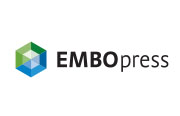
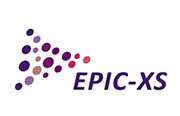
Sponsorship Opportunities
We offer a variety of event sponsoring possibilities, with the flexibility to select a set sponsorship package or combine individual sponsorship options to suit your event budget. Discounts are available for companies sponsoring multiple events at EMBL Heidelberg. View other conferences, or contact sponsorship@embl.de for further information.
If you are interested in becoming a media partner of this event, please visit our media partnerships webpage.

Date: 3 - 7 May 2021
Location: Virtual
Deadline(s):
Closed
Organisers:
Contact: Raili Pall